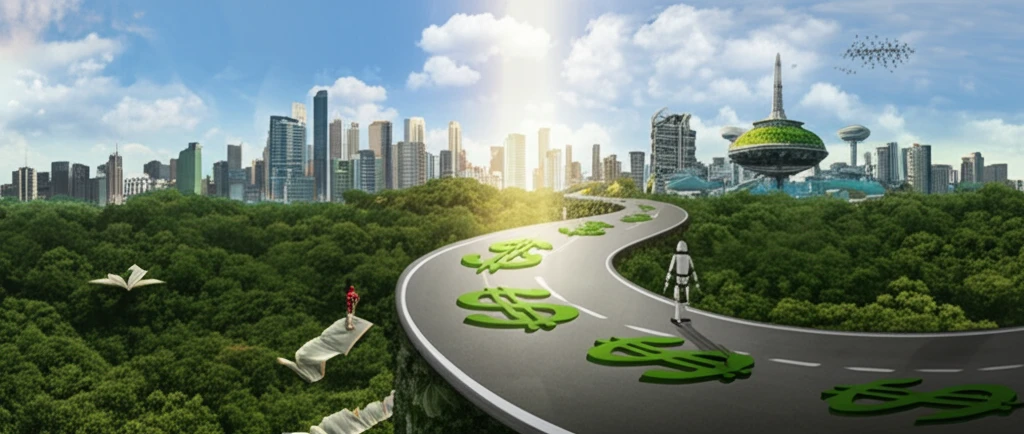
The Future of Work: Can Capitalism Lead Us to a World Without Labor?
"Exploring the Capitalist Road to Communism: Will automation and basic income redefine society?"
Imagine a world where machines handle most of the labor, freeing humans to pursue passions, creativity, and personal growth. This vision, once confined to utopian dreams, is gaining traction as automation and artificial intelligence rapidly advance. But how do we get there? Is there a path from our current capitalist system to such a radically different future?
The idea of a 'capitalist road to communism' proposes that we can leverage the productivity of capitalism, coupled with a universal basic income (UBI), to gradually transition to a society where work is no longer a necessity for survival. This challenges traditional Marxist thought, which typically envisions socialism as a necessary intermediary step.
This article explores this fascinating concept, diving into the roles of automation, basic income, and market socialism in potentially reshaping our economic and social landscape. We'll examine the feasibility and challenges of this transition, particularly in the face of rising inequality and the evolving nature of work itself.
The Capitalist Road to Communism: A 21st-Century Roadmap

The 'capitalist road to communism' suggests that we can reach a state of near-utopian freedom – where individuals are empowered to pursue their interests and contribute to society without being bound by economic necessity – by strategically utilizing the mechanisms of capitalism itself. This involves:
- Harnessing Productivity: Tapping into the incredible productivity of capitalist economies driven by technological advancements.
- Implementing Universal Basic Income (UBI): Providing a regular, unconditional income to all citizens, enough to cover basic living expenses.
- Redistributing Wealth: Financing UBI through taxes and other mechanisms that redistribute wealth more equitably.
- Embracing Automation: Allowing automation to replace routine tasks, freeing up human labor for more creative and fulfilling endeavors.
Navigating the Road Ahead
The capitalist road to communism is not without its challenges. Rising inequality, the potential for technological unemployment, and the need for significant institutional reforms all pose obstacles. However, by embracing strategic policies and fostering a more equitable and human-centered approach to technological development, we can navigate these challenges and pave the way for a future where everyone has the opportunity to thrive.
